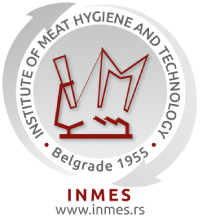Health hazards associated with ready-to-eat-meat in Nigeria: A call for public concern and critical interventions
Abstract
Scientific investigations on ready-to-eat meat (RTEM), popularly called Suya, sold in Nigeria are generating several public concerns due to microbial and chemical hazards associated with such products. This review evaluated the safety profile of Nigerian RTEM, with special focus on “Suya” as a potential source of microbial, heavy metal, polynuclear aromatic hydrocarbons (PAHs) food hazard. Assessments of outcomes of research articles on safety of RTEM published from 1984 to 2019 were carried out using electronic databases and key words. Research outcomes were categorized into six sections representing the six geopolitical zones (South-south, South-east, South-west, North-east, North-West and North-central) of Nigeria. Virtually all research findings in various zones revealed microbial, heavy metal or PAHs levels on RTEM were below acceptable standards. Unhygienic activities of most meat slaughterers (source of raw meat), processors (preparation and packaging of RTEM) and vendors (display and hawking process) were major contributing factors to microbial and chemical hazards. To this end, adequate safety and sanitary measures suggested and other essentials should be implemented by designated authorities and relevant stakeholders in ensuring the menace posed by unhygienic RTEM is curtailed drastically.





